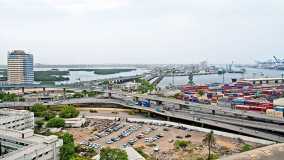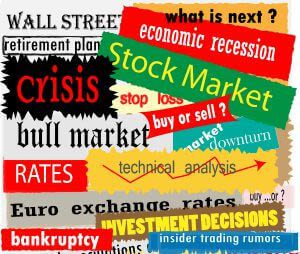Emerging markets in a volatile global economy
Developed economies also stand to benefit at the success of emerging markets. It opens new avenues to expand their trade and offers the opportunity to own part of emerging markets' resources and economic achievements.

Daymond John: Millennials lead in smart business technology

Pakistani economy cuts deficits in half in 2015

Android MOTO 360 2nd Generation review: A premium design

The past few weeks have seen volatility in the world economy. News about the shutdown of the US economy has emerged. Worries about ticklish stock markets and erratic economic situations in China and Europe seem to create a panic in global investments and trade. Indeed, volatility in the global economy has become a reality and the fate of both emerging markets and developed ones also hangs in uncertainty. However, there is an equal opportunity for both economies to become better and ultimately build a united economic force that would stand the test of time.
Issues that drive emerging market trends

Volatility of emerging markets and the global economic chart
Emerging markets and their economies make up about 80% of the world’s population and about 20% of the world’s economy. Popularly known as the Emerging Market Economy (EME), the success of such markets is mainly driven by a stable economic environment.
Experts label some big countries and small nations today as emerging markets, as they walk the path of reformation in government and economic programs. Undoubtedly, EMEs have become fast and growing economies. But this is only possible through genuine economic reforms.
The Business Frontal is of the view that emerging markets must also walk a genuine path of economic righteousness and move from closed to open market economies. By establishing accountability in their economic system, the investment opportunities for emerging markets become even much higher. As the advanced world economies see opportunity to invest and do business in them, emerging markets prevail.
Foreign investment capital in emerging markets is a plus. It shows trust and the long-term flow of currency in these emerging markets will ultimately boost their stock markets and overall economic activities.
Global economic benefits and wars
Developed economies also stand to benefit at the success of emerging markets. It opens new avenues to expand their trade and offers the opportunity to own part of emerging markets' resources and economic achievements.
An increase in the Gross Domestic Product (GDP) of emerging markets also ensures that the gap between developed and developing nations are consistently bridged. This eliminates dependency on foreign economies and independence to emerging markets. There is also an opportunity for the global micro investor to assert favorable business authority in his area of interest in a robust economy.
Developed economies or those nations that, because of their size, influence or engagements in the global economy have attained such status, must show leadership in handling their economies. Uncertainty or flaky political or economic decisions from them add to the volatility of the already shifting global economy. Leaders must take hard and genuine political and economic calls irrespective of one’s political affiliations.
The world recently showed solidarity with emerging markets economies in Africa at the Global Entrepreneurship Summit held in Kenya. However, the essence of this important economic call and others already being nurtured could be defeated if leading economies do not put their houses in order.

Enoch Antwi
Enoch Antwi is the managing editor at The Business Frontal. He worked as a business and an environmental journalist in the late 1990s with the Business and Financial Times. His passion is to provide on-demand valuable information and insights on business, entrepreneurship, leadership, innovative technologies, and principles for corporate success in today's business world.
More from Editorial

Mergers & acquisitions: The buzzing global wave

Trans fat elimination must be made permanent

Let's manage information technology well

Equity crowdfunding must continue its gains in 2015

US security and privacy laws tested by internet surge

Global entrepreneurship summit: An engine for change?

Google Science Fair charts the way forward for innovation


